 WORD SEARCH: Can you solve Allan Rae's classical music word search puzzles? We're currently publishing one per month.
WORD SEARCH: Can you solve Allan Rae's classical music word search puzzles? We're currently publishing one per month.
Sound Below Zero
I have been told by various people over the years that what they choose to listen to is often seasonally dependent. Whilst I can appreciate such thinking or feeling, it is not something I sympathise with, as what I choose to listen to at any given moment is not, nor ever has been, dependent in the slightest on what the weather is like outside or what time of year it is, at least not consciously anyway. As far as I am concerned, music makes its own weather and creates its own climate. That said, as I have to churn out this column every seven days, I am only too happy to accept any kind of scaffolding or connecting thread on which to hang together five pieces of music as grist to the mill. Wedded to the fact that winter has always been a huge source of inspiration for composers and that the temperature outside is below freezing and all is blanketed in a particularly dense fog as I write this, today I have chosen five pieces that were either directly inspired by winter or winter as refracted through the imaginations and words of various poets.
1: Peter Sculthorpe (1929-2014):
Snow (1971)
It may seem somewhat incongruous to think of that epitome of unforgiving sun and desert waste known as Australia when writing about music inspired by winter. But contrary to expectations the great southern continent is not immune to winter especially in its south eastern sections and even more so in its distant cousin Tasmania, which is where Peter Sculthorpe was born and raised. In 1971 Sculthorpe composed five beautifully evocative miniatures for piano called Night Pieces. Each piece lasts a minute or so in normal performance. However for this particular recording Roger Woodward asked the composer if he could cut out the middle man as it were and play the notes directly on the strings of the piano thereby turning the instrument into some kind of enormous lyre and reducing the tempo of the original piece markedly. Thankfully Sculthorpe agreed and the resulting recording gives an already evocative piece a whole otherworldly magical dimension.
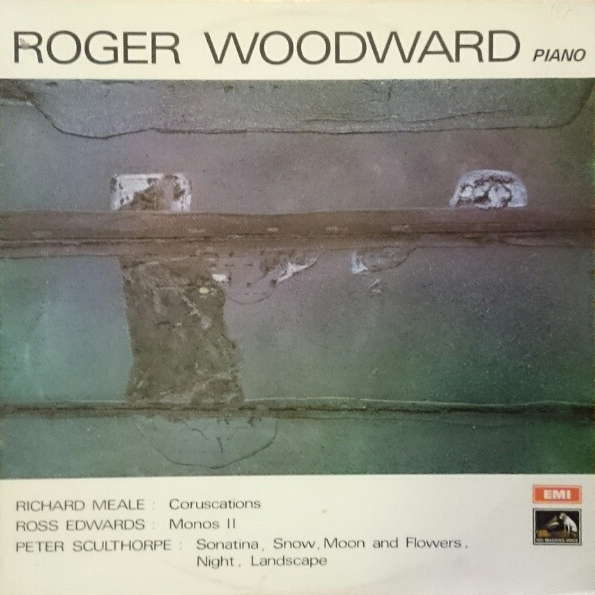
Roger Woodward, piano - Richard Meale, Ross Edwards, Peter Sculthorpe. © 1972 His Master's Voice/EMI
2: Niccolò Castiglioni (1932-96):
Inverno In-Ver (1973)
Last year I wrote a review of a CD of Niccolò Castiglioni's piano music in which I mentioned this piece and so, on its fiftieth birthday, here it is in all its crystalline majesty. It is not completely clear what Castiglioni meant by his cryptic title as was his wont. The subtitle - eleven musical poems for small orchestra - is clearer. It is a score that literally drips with melted frost and shimmers and sparkles with low-lying ice-reflected winter light. The title of the last of these eleven musical poems will hopefully be the slogan for 2023 and every subsequent year. 'Il rumore non fa bene, il bene non fa rumore.'
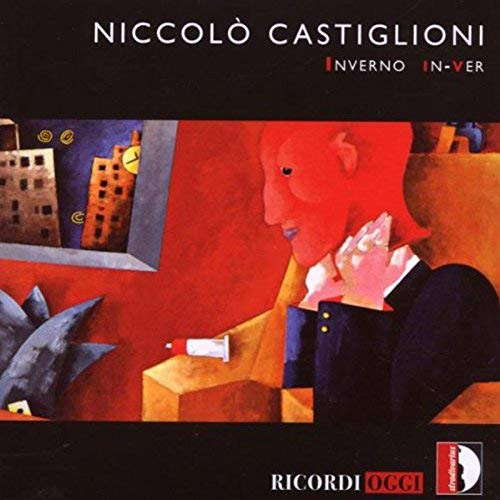
Niccolò Castiglioni: Inverno In-Ver. © 2007 Stradivarius Records
3: Sofia Gubaidulina (born 1931):
Jetzt Immer Schnee (1993)
Now in her tenth decade and with a seemingly undimmed work ethic, one should not be surprised that among the output of Sofia Gubaidulina which she has built up over the years there is much buried treasure to be found as is the case with this piece. Although the title is German, the work sets Russian poems by Chuvash poet and Gubaidulina peer Gennadiy Aygi. It is written for choir and ensemble which Gubaidulina deploys in her inimitable fashion. There is a lot of utterly vacuous, hollow, mind-numbing and thought-suffocating muzak around these days which has turned the adjective 'spiritual' into almost a dirty word, which should never be the case. Mercifully we still have composers like Gubaidulina who keep spirit in all its varied, messy, scary and radiant beauty alive and kicking in the spiritual.
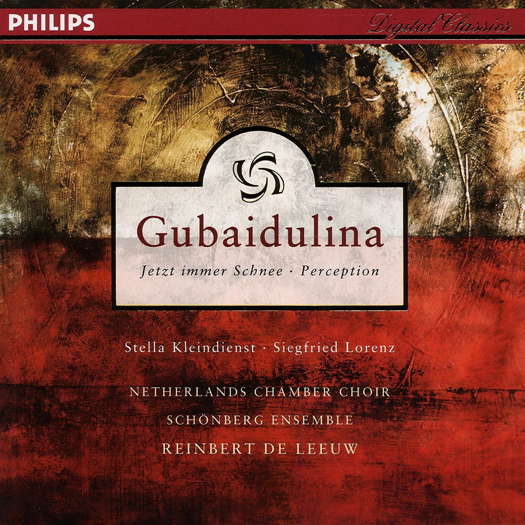
Gubaidulina: Jetzt Immer Schnee; Perception. © 2012 Universal Music Group
4: George Benjamin (born 1960):
A Mind of Winter (1981)
Wunderkind George Benjamin was barely out of his teens when he set Wallace Stevens' poem The Snowman, thus demonstrating, not for the first time, his ridiculously precocious and already thoroughly idiosyncratic and developed sense of timbre, mood and orchestration. Few poets were as attuned to the subtleties of the natural world or as adept at that nuanced alchemy of sound, symbol and syllable as Stevens and as such he gives composers little room to operate within. His poems are already so musical that to set them seems superfluous and redundant, almost disrespectful. Maybe it takes the excitement, insouciance, innocence or fearlessness of adolescence to attempt such foolhardiness, and even more so to pull it off. Or maybe it just requires genius. Either way Benjamin's A Mind of Winter only increases the magic spell cast by Stevens' Snowman.
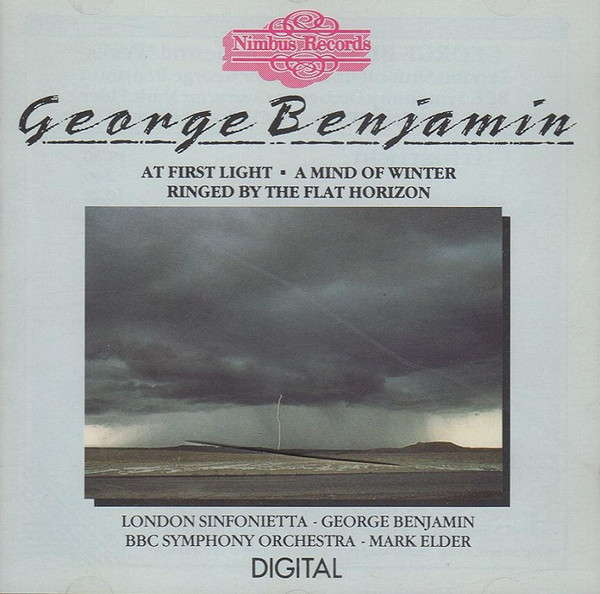
George Benjamin. © 2007 Wyastone Estate
5: Jean Sibelius (1865-1957):
Ett ensamt skidspår (1948)
Among the numerous extraordinary aspects of Jean Sibelius and his music is the fact that he basically stopped composing completely when he reached the age of sixty, or soon after, despite the fact that he lived into his nineties. Imagine if Havergal Brian or Elliott Carter had done likewise how different their catalogue of works would now be. One of the very few pieces to condense out of this icy silence is this little jewel of northern light.
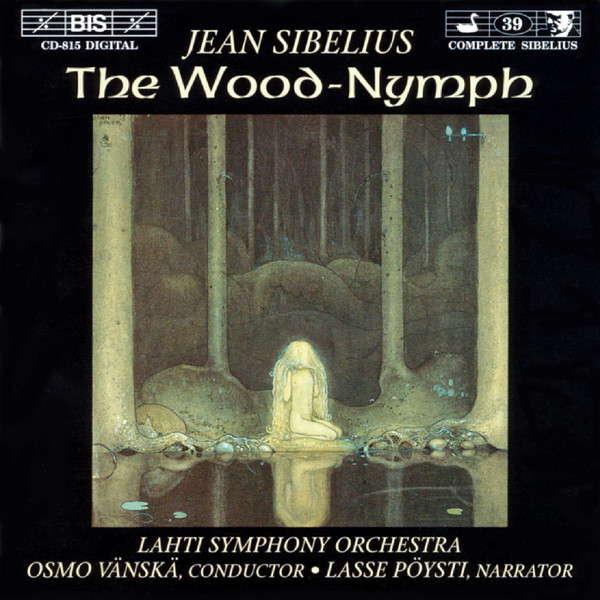
Sibelius: The Wood-Nymph. © 1996 BIS Records AB
It is a melodramatic setting - by that I simply mean that the text is spoken rather than sung - of a haunting poem written by an associate of Sibelius: Bertel Gripenberg, who died the year before Sibelius arranged this piece for harp and strings from the piano original of 1925. It is a most fitting farewell to both poet and composer and to this week's chilly dispatch.
A lonely ski trail that disappears
In the loneliness of the forest
A human life that runs itself out
On paths that no one knows
The answers remained far distant
To the questions that filled the heart
A meandering track on the icy snow
Was my roving way.
This feature copyright © 15 January 2023
Robert McCarney,
León, Spain




